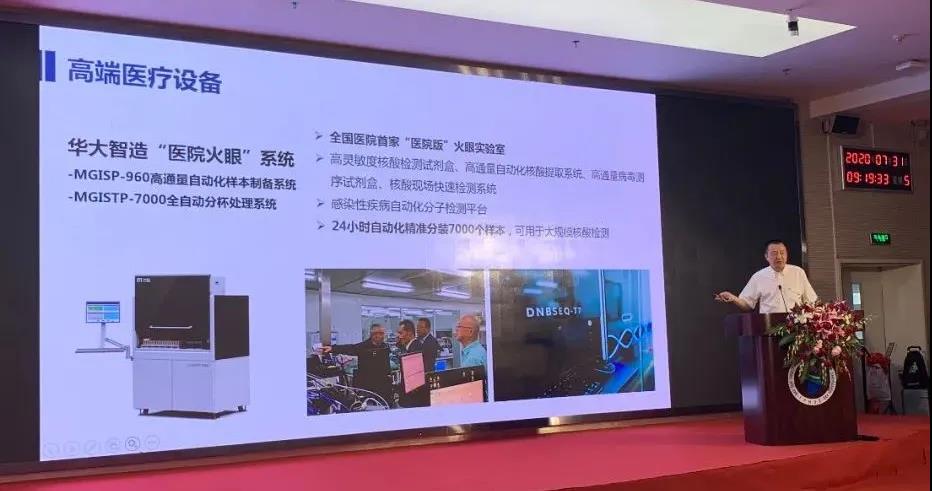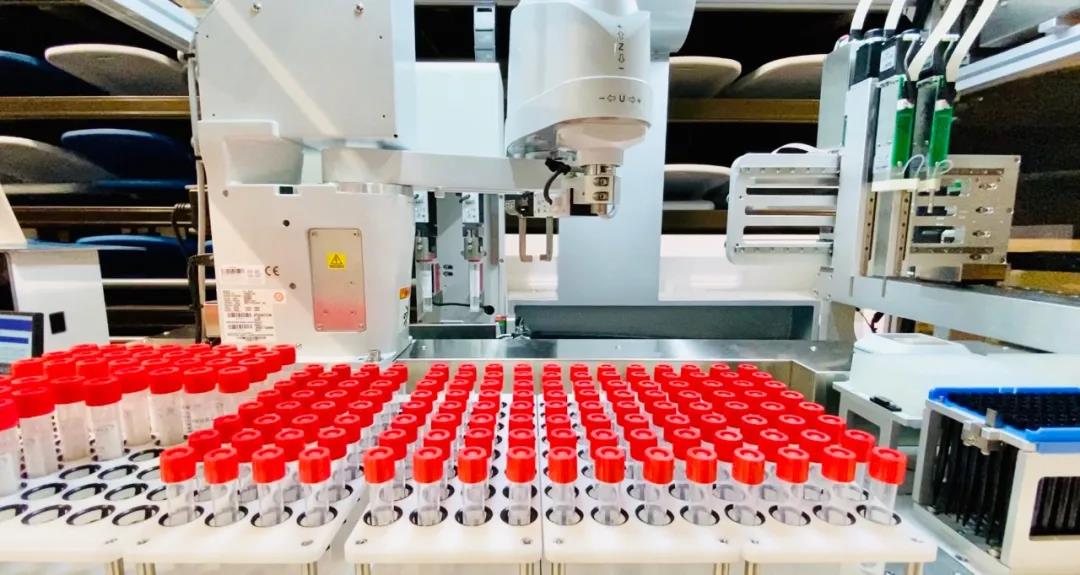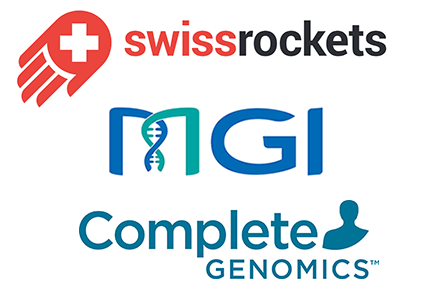China’s first “hospital version” of the Huo-Yan lab with MGI equipment has been established in the Third People’s Hospital of Shenzhen, a national clinical medical research center for infectious diseases. The hospital plans to build an automatic molecular detection platform for infectious diseases, promote rapid diagnosis and large-scale detection of pathogenic microorganisms, and enhance clinical inspection capability. This package also helps the hospital complete full technical preparations in advance for the possible expansion of imported cases in the autumn and winter.

Liu Lei, director and dean of Shenzhen National Clinical Medical Research Center for Infectious Diseases is doing the report
Liu Lei, Dean of the Third People’s Hospital of Shenzhen, said that during the COVID-19 outbreak, the solution for fast, efficient, and accurate detection of nucleic acids has always been a particular concern. In the past, after throat swab and nose swab sample collection, the lab technician needed to take out swabs in advance, and then complete tube uncapping, liquid transferring, tube recapping, barcode identification, and information check. These manual operations not only reduce the efficiency of nucleic acid detection, but also increase the risk of novel coronavirus infection for technicians.MGI’s high-throughput automated sample transfer processing system MGISTP-7000 and high-throughput automated sample preparation system MGISP-960, introduced by the Third People’s Hospital of Shenzhen, are China’s first systematic solution to apply the “Huo-Yan” lab to hospitals.
![]()
The high automation of the whole process can help to reduce the time of sample processing of nucleic acid detection to 2 hours (including all related operations from sample collection and sample loading to nucleic acid extraction of 192 samples), thus shortening the time needed for issuing a report to 4 hours.

MGISTP-7000, the high-throughput automated sample transfer processing system
MGI’s high-throughput automated sample transfer processing system MGISTP-7000 and high-throughput automated sample preparation system MGISP-960 received Class III medical device qualification by the China National Medical Product Administration (NMPA), and helped the Huo-Yan labs to scale up the capacity of nucleic acid detection, thus giving full play to the advantages of large-scale detection.



 Sequencer Products: SEQ ALL
Sequencer Products: SEQ ALL















 Technologies
Technologies Applications
Applications Online Resources
Online Resources Data Bulletins
Data Bulletins Service & Support
Service & Support Global Programs
Global Programs Introduction
Introduction Newsroom
Newsroom Doing Business With Us
Doing Business With Us Creative Club
Creative Club













